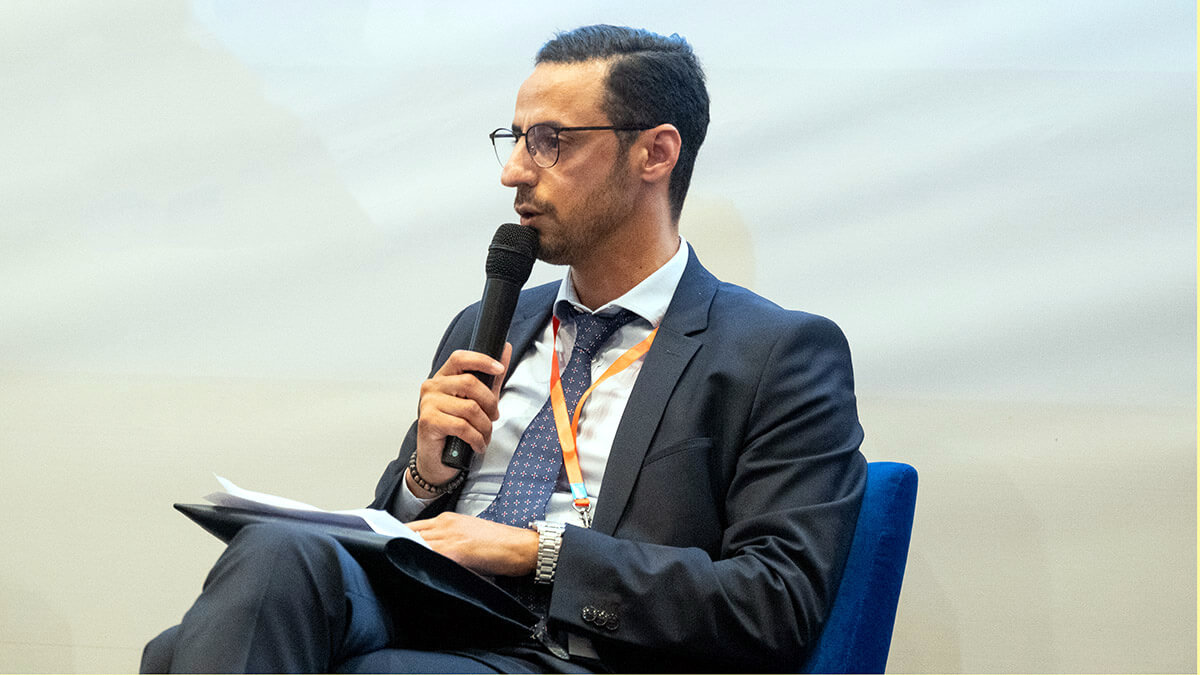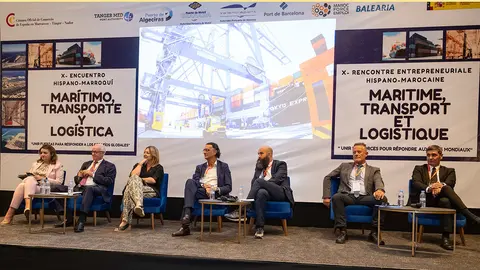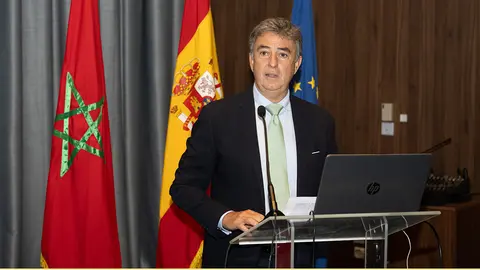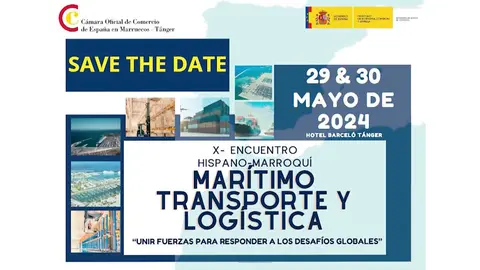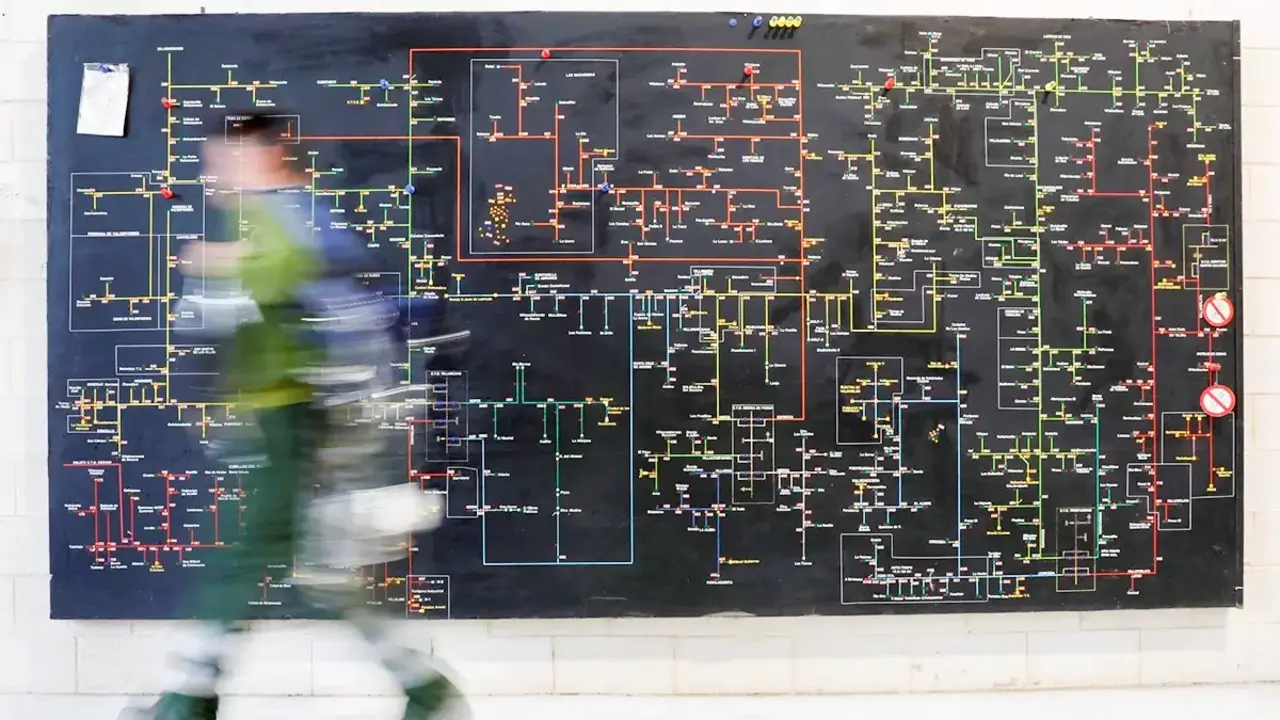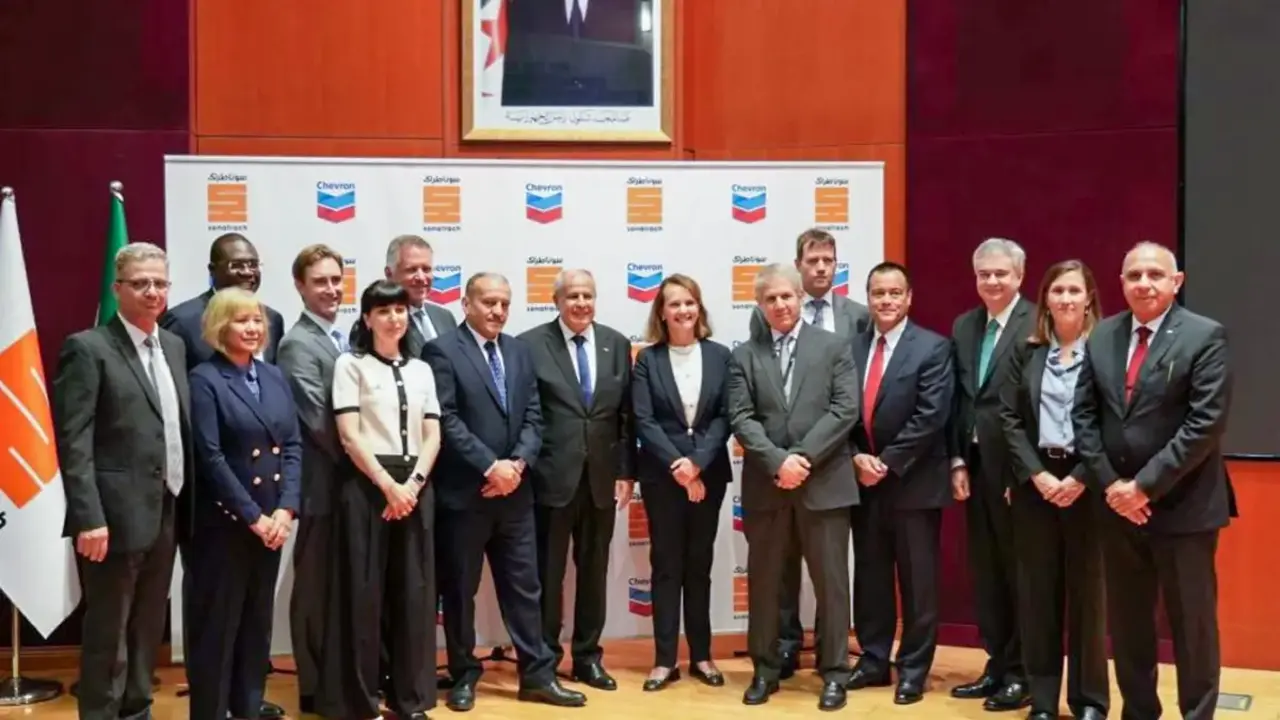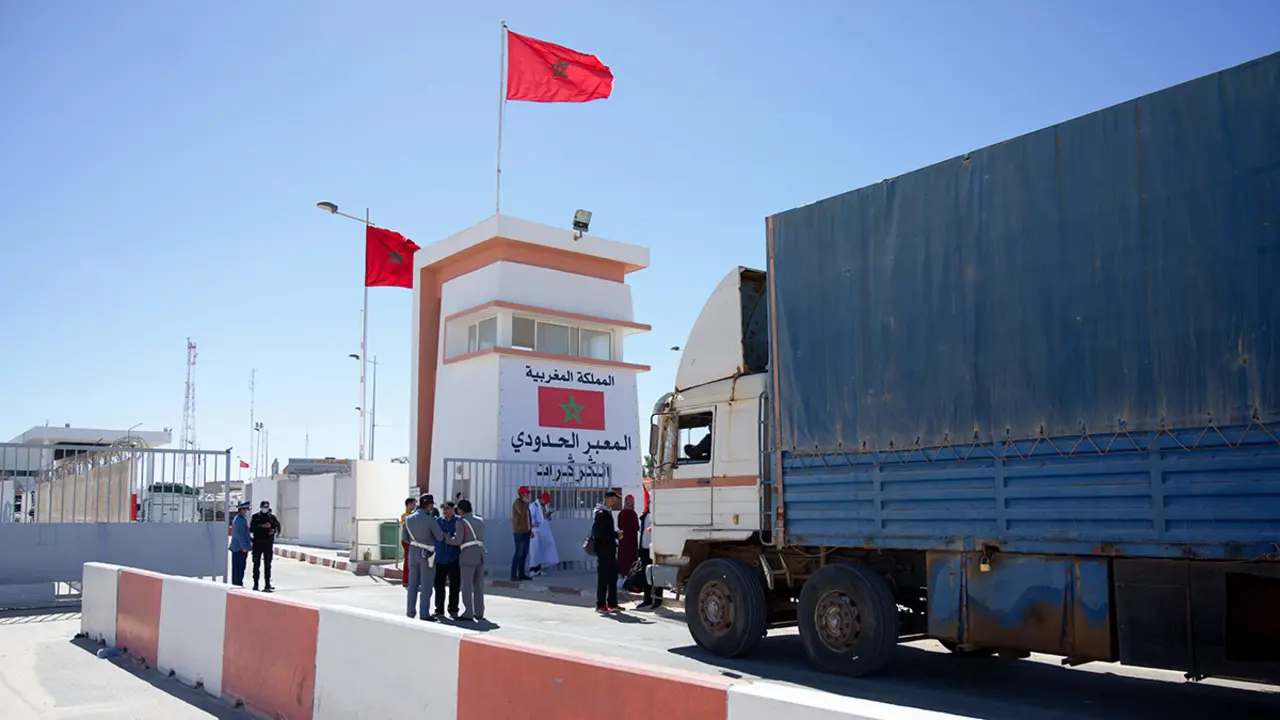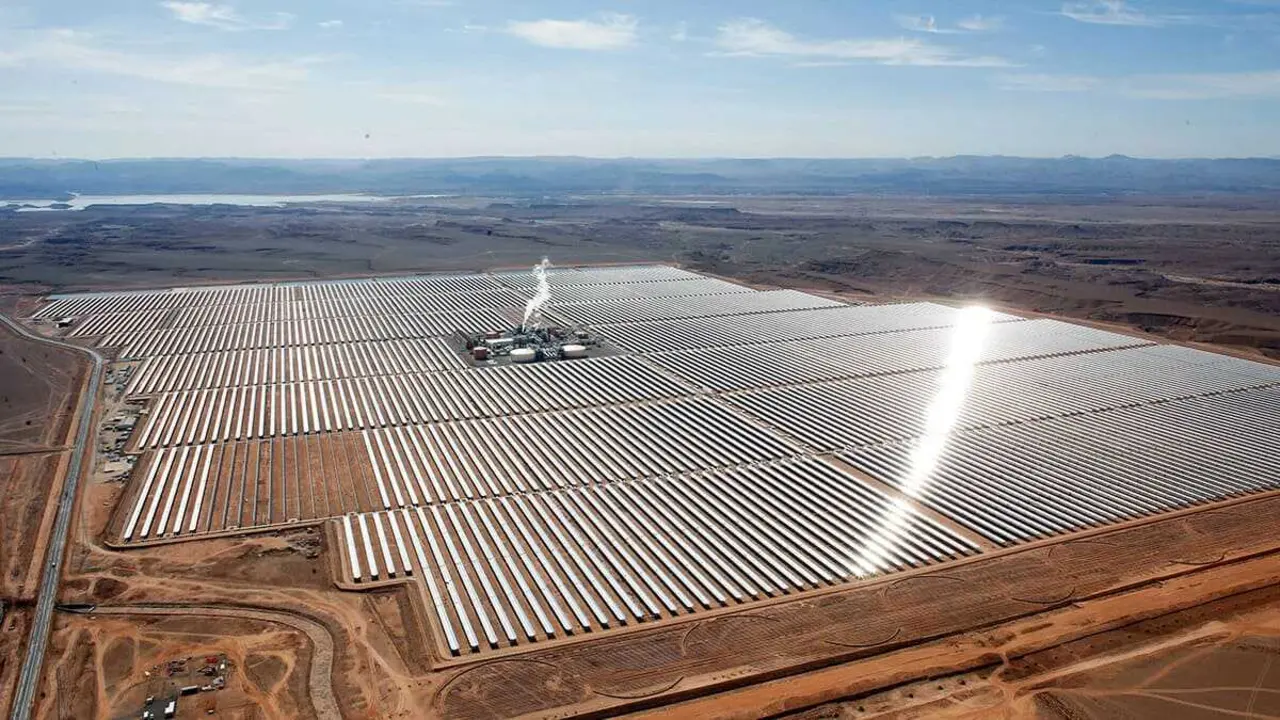Baleària is committed to punctuality and traceability to develop the maritime sector
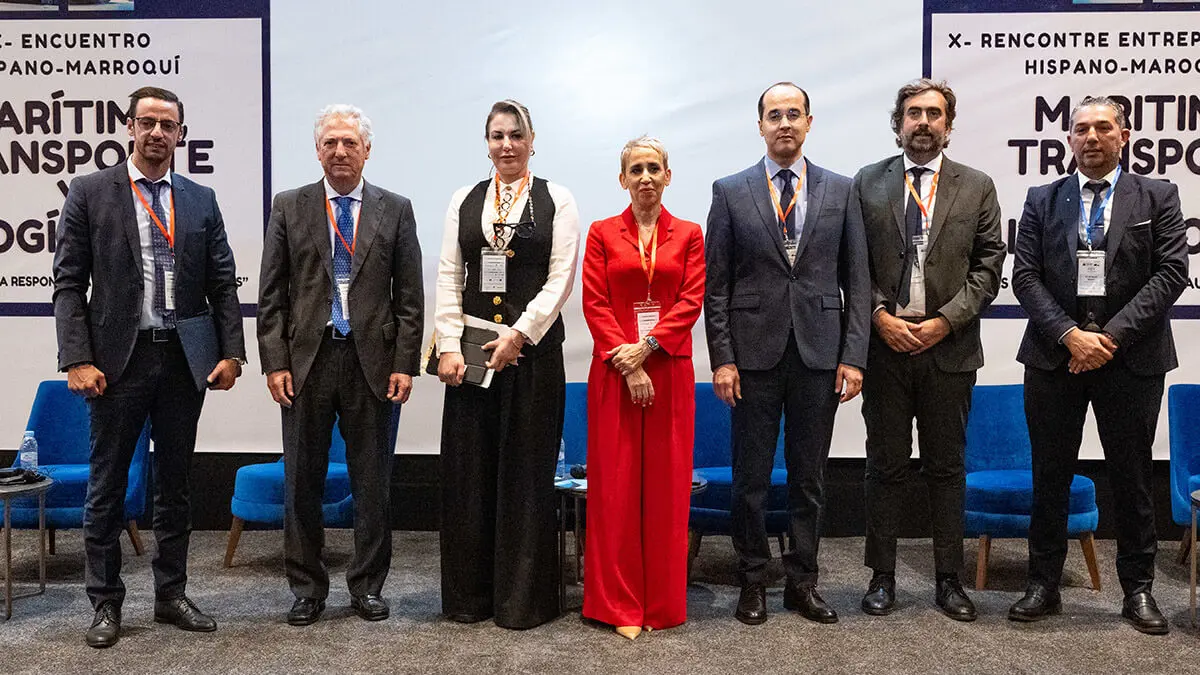
- Algeciras: digitalisation for better traceability of the physical and documentary logistics process
- Human capital, digitisation and punctuality, three keys to the success of Tangier Med
- Renault's strategy is based on digitalisation
- ‘Digitalisation requires all of us to embrace this change’
- Decarbonisation is the biggest challenge in maritime transport and logistics
The first panel of the 10th Spanish-Moroccan Maritime, Transport and Logistics Meeting was attended by Baleària and the port authorities of Tangier Med and Algeciras Bay to discuss the challenges facing these vital sectors for the economy of both countries.
Georges Bassoul, CEO of Baleària, urged participants to opt for digitalisation and innovation to improve their performance and increase the quality of their services; emphasising digital practices and the powerful and active control system that allows for risk avoidance and better planning of the sector.
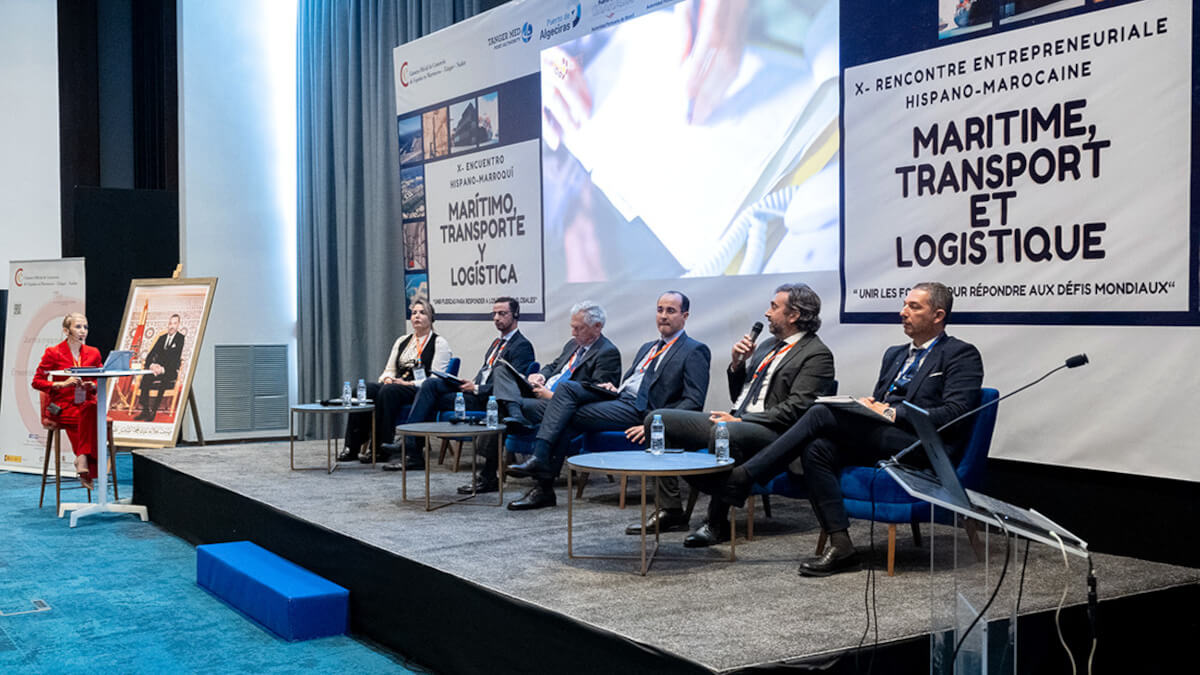
‘Baleària is an operator that has been working in the Kingdom of Morocco for 20 years; and like other companies, it faces enormous challenges in a changing world in search of innovative solutions to continue serving the customers who trust us in the best possible way,’ Bassoul explained.
The Spanish company based in Morocco is committed to digitalisation and innovation, according to the general manager, in order to offer up-to-date, well-structured services of the best possible quality by optimising operational processes at different stages.
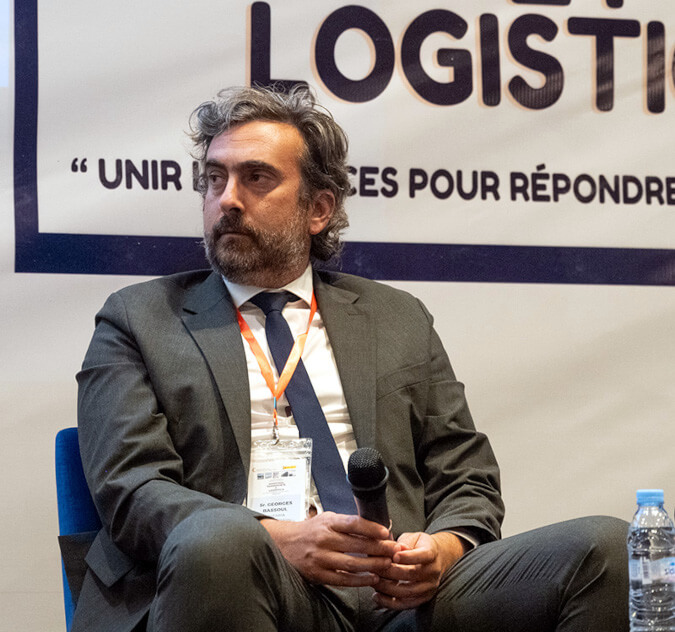
‘Another key element for Baleària is punctuality; so the company strives to meet the ships’ schedules and make them reasonable, transparent and fulfilled at the right time, thanks to efficient and fast collaboration and communication with the administrations, authorities and other services,’ added the Baleària representative.
As for the achievements of the company Baleària, Georges Bassoul underlined the option for the use of liquefied natural gas (LNG) as a transition fuel towards a decarbonised future; pointing out that Baleària ships emit 30% less CO2.
Algeciras: digitalisation for better traceability of the physical and documentary logistics process
Rafael Olivares, Deputy Assistant Director of Operations at the Port of Algeciras Bay, highlighted the growth recorded in the first half of 2024, thanks to a strategy based on four pillars:
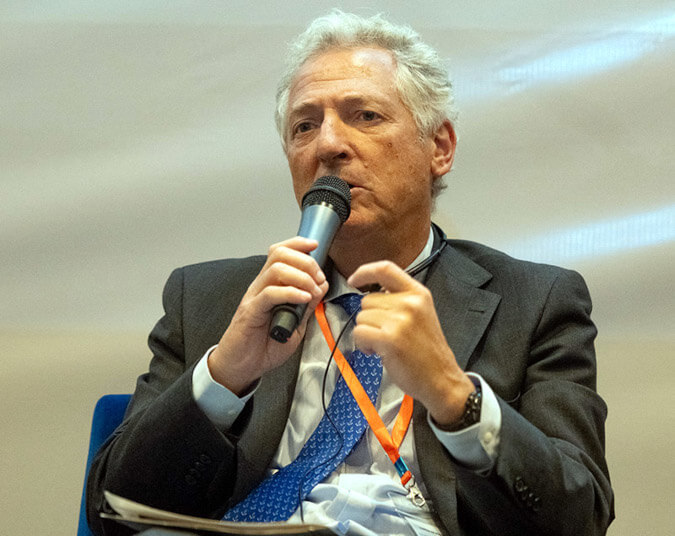
-
Infrastructure with a series of works and investments such as the new maritime station, the total modernisation of existing lines and the extension of railway tracks.
-
Traffic management with maximum occupancy levels, but seeking to improve efficiency.
-
Compliance with punctuality and the time taken to complete procedures and wait times.
-
Innovation by opting for a digital operations management platform for ease, efficiency and traceability of the entire physical and documentary logistics process.
Human capital, digitisation and punctuality, three keys to the success of Tangier Med
The Port Authority of Tangier Med represented by Idriss Aarabi, director of import-export and rail operations, explained the factors that made Tangier Med a successful project thanks to:
- The partnership with major international operators that has allowed Morocco to better position itself on the world maritime map.
- The human capital, 100% Moroccan, working in the different maritime companies and authorities (10,000 people); in addition to the 15,000 employees in the industrial zones of Tangier Med.
- The digitised management system with a one-stop shop that includes all services and allows physical and documentary traceability.
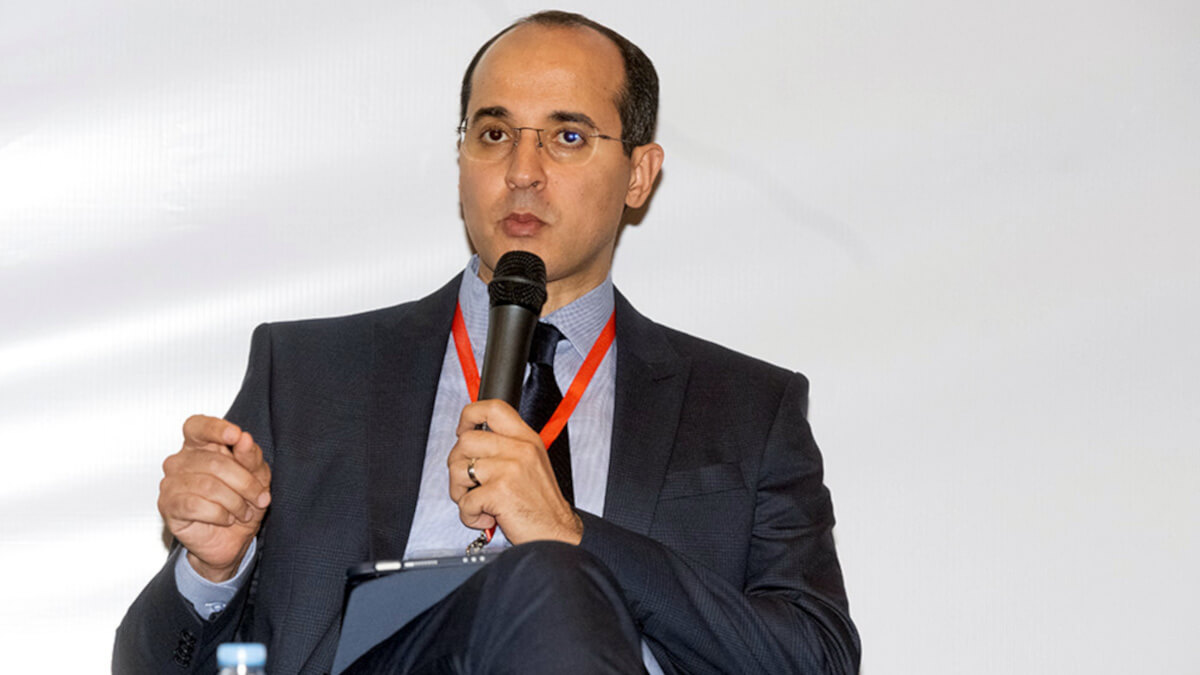
Renault's strategy is based on digitalisation
For his part, Khalid Ramy, head of Renault Morocco's International Transport Department, shed light on the company's strategy for increasing production and performance that aims to achieve operational efficiency.
‘Innovation and digitalisation initiatives have had a very positive impact on economic efficiency, thanks to data analysis that facilitates planning, traceability, accuracy, risk management and error reduction; without losing sight of the importance of consolidating storage capacity,’ Ramy concluded.
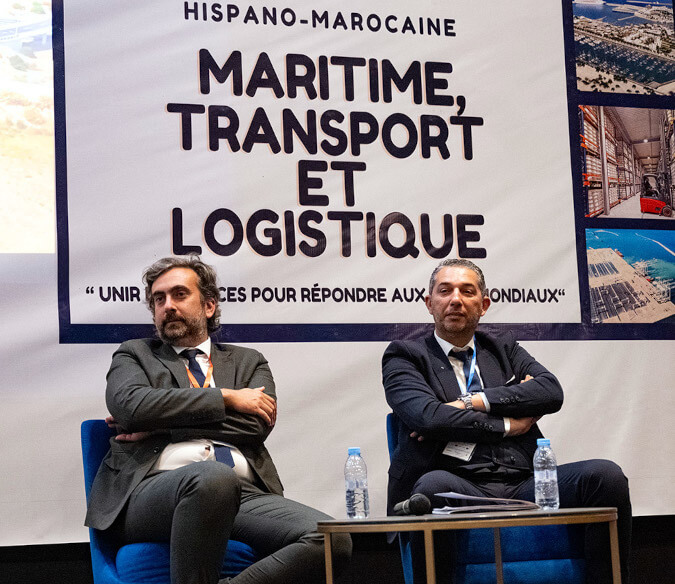
‘Digitalisation requires all of us to embrace this change’
Khadija Tamba, CEO of the Maroc Force Emploi group, underlined the importance of digitalisation for the maritime, transport and logistics sectors calling it ‘a change that we all need to adhere to’.
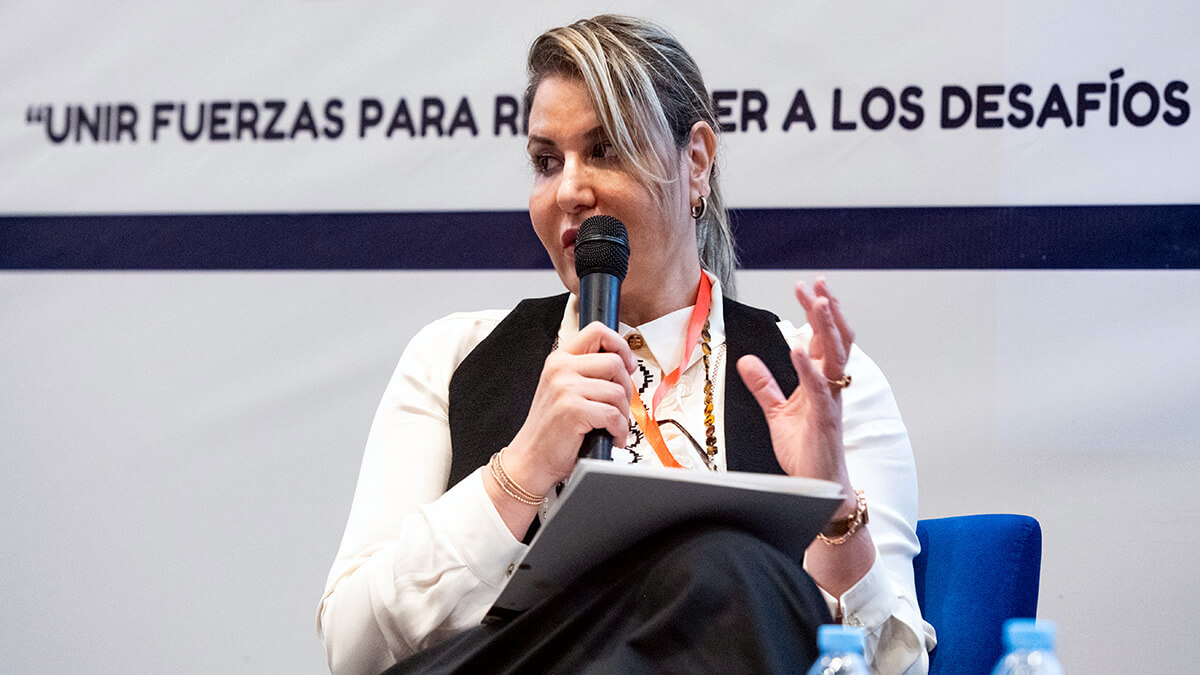
‘Digitalisation is a path that we have started in 2016 to have a virtual human resources monitoring system, manage human capital efficiently to respond to customer needs; through personalised services that work remotely,’ Tamba clarified.

The company, as reported by the representative of Maroc Force Emploi, accompanies investors in their first stage of the recruitment process and urges them not to be content with looking in big cities while there are other regions where they can find highly qualified skills and human resources.
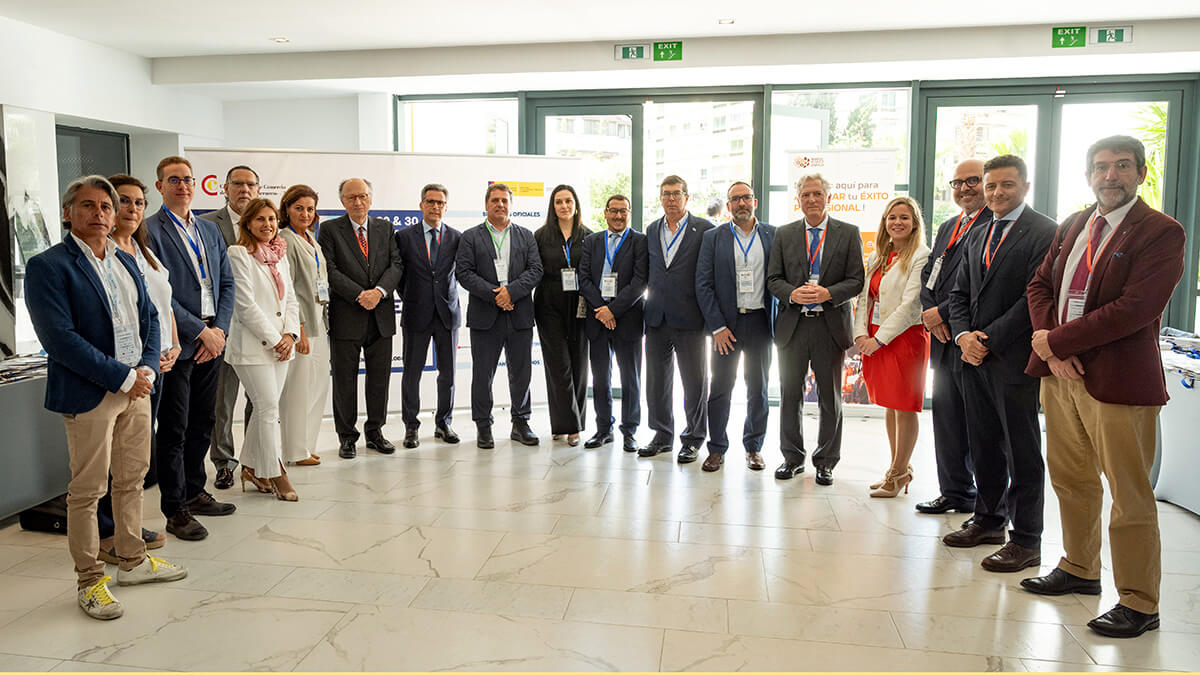
‘In this regard, the company reaches out through its intelligence cell with a campaign to more than 6,000 people; this facilitates recruitment and reduces the unemployment rate in other regions of the Kingdom,’ added Khadija Tamba.
Decarbonisation is the biggest challenge in maritime transport and logistics
Mourad Erraguragui, vice-president of the Moroccan International Road Transport Association (AMTRI), highlighted the green strategy that goes hand in hand with digitalisation in order to decarbonise and dematerialise these sectors through clean energy and electronic documentation.
